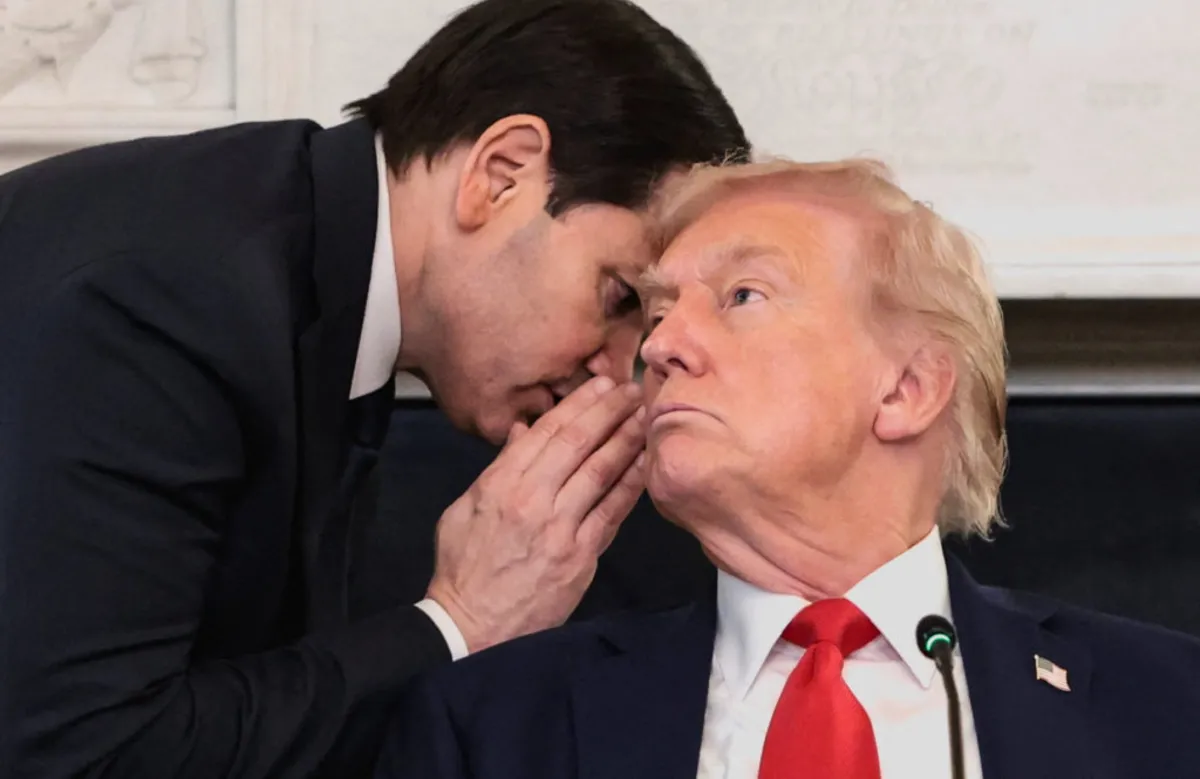
On Wednesday, President Donald Trump hosted a roundtable event in the White House's Blue Room, focusing on discussions regarding antifa and its implications for national security. The event featured prominent conservative influencers and aimed to address pressing issues surrounding domestic terrorism. However, the atmosphere shifted when Secretary of State Marco Rubio caught Trump's attention with an urgent message.
As the event progressed, Rubio, who was positioned at the back of the room, indicated he had critical news for Trump. He requested to wait until the media had left before delivering the information. Shortly thereafter, Rubio discreetly handed Trump a note written on White House stationery. This note contained a clear message: “You need to approve a Truth Social post soon so you can announce the deal first.”
During the roundtable, Trump shared with the attendees, “I was just given a note by the secretary of state saying that we’re very close to a deal on the Middle East, and they’re gonna need me pretty quickly.” This statement underscored the high stakes involved in the ongoing peace discussions.
The timing of Rubio's note coincided with a critical phase in the peace negotiations involving Israel and Hamas. Trump’s top Middle East adviser, Steve Witkoff, alongside senior officials including Qatari Prime Minister Sheikh Mohammed bin Abdulrahman Al Thani, were engaged in intensive discussions at an Egyptian resort. These talks represented the third consecutive day of negotiations aimed at resolving the ongoing conflict in Gaza.
At the onset of the influencer event, Trump expressed his intentions to travel to the Middle East later in the week, hinting at possible visits to Egypt and the Gaza Strip as U.S. negotiators moved closer to finalizing a deal. Despite the urgent tone of Rubio's note, Trump continued to engage with the influencers and answer questions from the media, while Rubio appeared increasingly anxious about the time.
After nearly ten minutes of continued dialogue, Trump acknowledged the need to depart, stating, “I have to go now to try and solve some problems in the Middle East — although I’m very well represented by our secretary of state. He could probably do an even better job than me, but who knows.” This comment highlighted the collaborative efforts of the U.S. administration in pursuing peace in the region.
Trump further emphasized the urgency of the situation, saying, “We don’t want to take any chances. So we’re going to go and do that.” He suggested that Attorney General Pam Bondi and Homeland Security Secretary Kristi Noem remain to answer questions in his absence. However, Trump continued to field inquiries before the event concluded without any Cabinet members left behind.
As the roundtable wrapped up, Trump confidently proclaimed, “We’re gonna get peace in the Middle East. That’s what we want to do.” His remarks reflect a persistent commitment to resolving one of the most complex geopolitical issues, while balancing domestic discussions on antifa and national security. The convergence of these events illustrates the multifaceted challenges faced by the Trump administration in both domestic and international arenas.